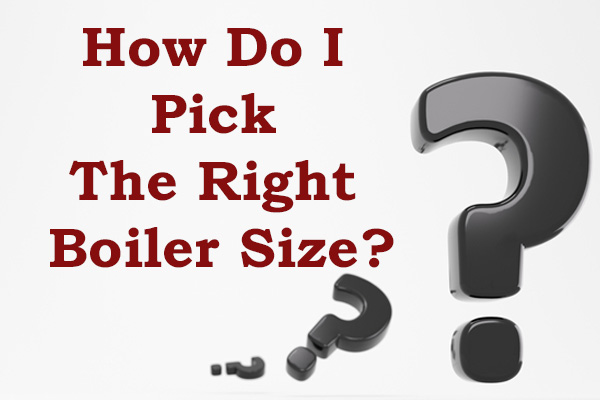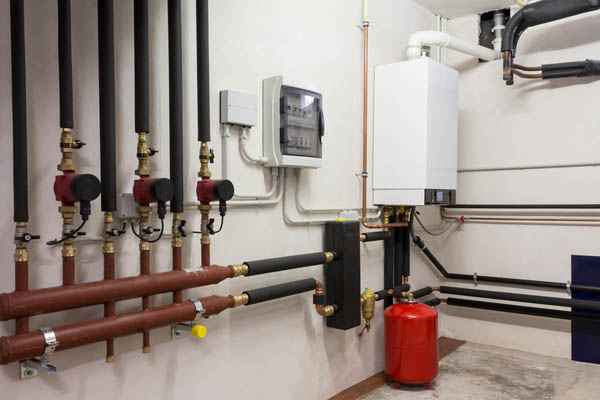Table of Contents
A house truly becomes a home when it offers comfort, especially during the chilly season with a reliable heating system. However, selecting the right boiler isn’t a straightforward task; it’s not just about choosing the largest model. Finding a boiler that fits your needs involves considering various factors and consulting with an HVAC specialist for an informed decision. This article will delve into the essentials of choosing the appropriate boiler size and type for your home.
How To Determine The Best Boiler Size For Your Home

Selecting the right boiler is a crucial decision, not to be taken lightly. With boilers potentially lasting over a decade with proper maintenance, it’s vital to choose one that offers excellent compatibility, reliable performance, and high energy efficiency. An ill-suited boiler can lead to frustration, ongoing issues, and extra expenses. To avoid these pitfalls, it’s wise to seek advice from a local HVAC contractor.
The Importance of Proper Boiler Size Selection
When it comes to boiler size, focus on the unit’s energy output, measured in kilowatts, rather than its physical dimensions. This measurement indicates the boiler’s heat-generating capacity. Choosing the correct size for your home is essential; a size that’s neither too large nor too small minimizes wasted energy and avoids paying for unneeded heat.
Factors Impacting Boiler Size

The size of the boiler you need depends on the heating requirements of your house. An HVAC professional can calculate the appropriate size based on several key factors. These include the number of radiators, the size and layout of the property, hot water demand, and the type of fuel used.
Understanding these factors helps in selecting the right equipment.
- Number of Radiators: The count of radiators in your home is a crucial factor. For instance, a typical four-bedroom family home with about ten radiators might need a boiler rated at 24 kilowatts. Smaller homes with fewer bedrooms and radiators can opt for a lower rating, while larger homes, perhaps with twenty radiators, may require boilers rated up to 42 kilowatts. HVAC contractors use this information to recommend a boiler that matches your home’s heating needs.
- Property Size The size of your property is a significant factor in determining the right boiler size. Larger homes have more air to heat, requiring a boiler with a higher heat output. Choosing a boiler that’s too small for a large home can lead to discomfort, especially during the coldest parts of winter.
- Heat Loss Heating engineers use a detailed method to calculate the ideal boiler size, focusing on the heat loss of a property rather than just its dimensions. This approach considers various factors, including the number of windows and radiators, floor area, and insulation type. By accounting for these elements, they can determine the precise boiler size needed to effectively heat the home even on the coldest days.
- Fuel Type The type of fuel your heating system uses is an important consideration. Options vary from natural gas to heating oil, liquefied petroleum gas, or even renewable energy sources. The type of fuel impacts the system’s efficiency. If environmental impact is a concern, look for a system with a high Annual Fuel Utilization Efficiency (AFUE) rating.
- Bathrooms and Showers Consider the number of bathrooms in your home, as they significantly impact hot water demand. A more powerful boiler ensures consistent water pressure without excess energy use. Think about the number of people in your household and the frequency of bath and shower usage.
Types of Boilers for Homes

Choosing the right type of boiler, not just the size, is crucial. There are three main types of boilers, each with its advantages and drawbacks. When selecting a boiler type, consider the existing boiler system and the space available for the new unit. The following section will provide an overview of each boiler type.
- Combi Boilers Combination boilers, or combi boilers, heat water on demand, meaning you don’t have to wait long for hot water. They don’t store hot water, so no tank space is required, making them ideal for smaller homes. Combi boilers combine a water heater and central boiler, but they can’t heat space and water simultaneously. If your home requires hot water from multiple outlets at the same time, a combi boiler may not be the best choice.
- Conventional Boilers These traditional boilers feature two storage tanks for hot and cold water. The boiler heats the water through fuel combustion, and a pump then moves this hot water to a storage tank, ready for instant use from taps or showers. Conventional boilers are commonly found in older houses. If you’re living in such a property and need a replacement, opting for another conventional boiler is often a practical choice.
- System Boilers For larger families with high hot water demands, system boilers are an ideal choice. They draw water directly from the mains and heat it in a storage cylinder, eliminating the need for a separate cold-water tank. System boilers can supply hot water to multiple outlets at once, unlike combi boilers.
The Consequences of an Oversized Boiler
An oversized boiler often leads to short cycling, where the boiler frequently turns on and off due to rapid heating of the space. This causes the radiators to overheat and can lead to premature wear of the boiler components, reducing the lifespan of the boiler.
The Consequences of an Undersized Boiler
On the other hand, a boiler that is too small struggles to adequately heat the home, especially on extremely cold days. It may take a long time to warm up the house, and hot water may run out quickly if multiple people are using it simultaneously. An undersized boiler can fail to provide the immediate warmth needed, particularly after coming home from work.
Conclusion
Boiler selection is a technical matter. Homeowners who take the time to understand the process are more likely to be satisfied with their choice. If you want to prevent costly errors, consult a competent HVAC contractor and perform heat loss calculations.
Call County Line Fuel For Superior Home Comfort Solutions

County Line Fuel is your go-to heating oil delivery company, servicing Clinton, NJ, and the surrounding areas. With our commitment to providing excellent products and services, you can trust us to meet all your heating needs. We offer the most competitive heating oil prices in the area, ensuring you get the best value for your money.
When you choose County Line Fuel as your oil supplier, you can count on accurate and prompt heating oil deliveries at affordable prices. Our various heating oil delivery plans and financing options allow you to customize your oil deliveries to suit your specific preferences. We take pride in making heating your home hassle-free and cost-effective. Click the link to get started.
Our preferred HVAC service partners have certified and highly trained HVAC technicians that are ready to cater to all your heating and cooling needs. With their expertise and knowledge, they can handle installations, repairs, maintenance, and more. Our superior HVAC solutions are designed to keep your home comfortable all year round without breaking the bank.
At County Line Fuel, customer satisfaction is our priority. We strive to deliver outstanding service and reliable solutions tailored to your unique requirements. For more information, contact us today. Experience the comfort and peace of mind that comes with choosing County Line Fuel as your trusted partner for all your home comfort needs. Call now!
You can click here to contact us now or call us at (908) 735-7610 to find out more!
Related Articles:
